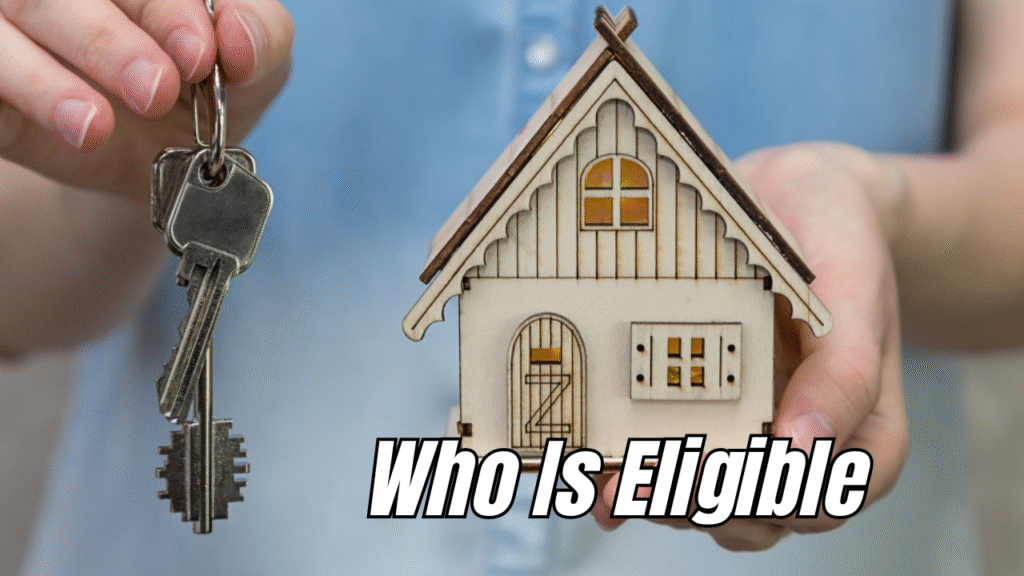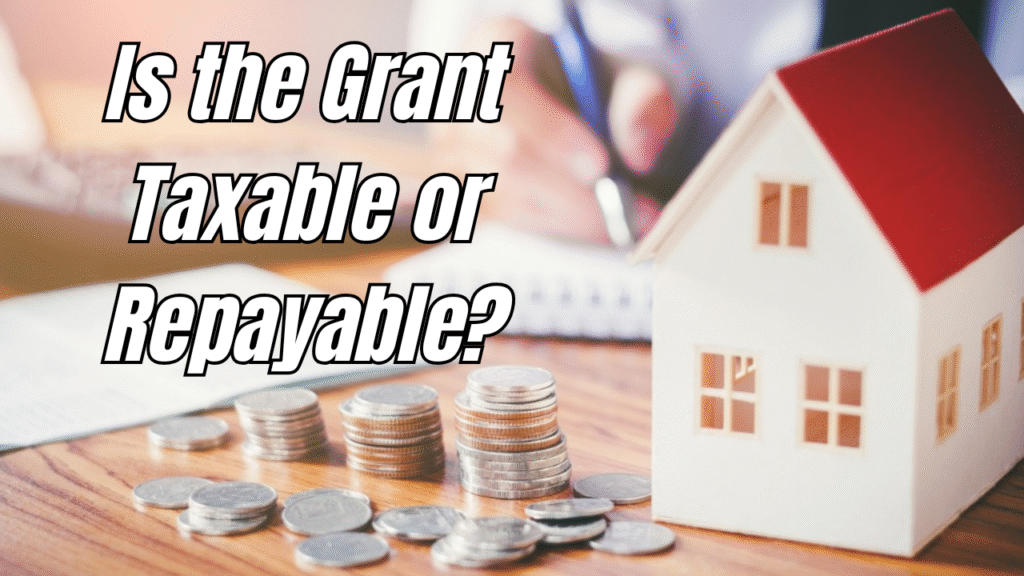Introduction
As Canada’s housing crisis deepens due to rising rents, soaring home prices, and inflation, emergency housing support has become a vital safety net for low-income individuals and families. In response, the Canadian government is offering $2,000 Emergency Housing Grants in 2025 to eligible applicants who are struggling to secure or maintain stable housing.
This article breaks down everything you need to know about the $2,000 emergency housing grants—including eligibility criteria, how to apply, payment timelines, and how this initiative can be a game-changer for vulnerable Canadians. If you’re facing housing insecurity or know someone who is, this comprehensive guide could be life-changing.
1. What Are Emergency Housing Grants?
Emergency Housing Grants are non-repayable financial aids provided by the federal or provincial governments to assist individuals and families who are:
- Facing homelessness
- Living in precarious housing
- Evicted or at risk of eviction
- Unable to cover basic housing-related costs
Unlike loans, these grants do not need to be paid back, making them an essential part of Canada’s poverty-reduction strategy.
2. Purpose of the $2,000 Emergency Grant
The $2,000 Emergency Housing Grant for 2025 is intended to:
- Cover rent arrears
- Pay for first and last month’s rent
- Help with security deposits
- Assist with moving costs
- Prevent evictions
- Support relocation due to domestic violence or unsafe housing
The grant is needs-based, meaning it is specifically designed for people who have exhausted their other financial resources.

3. Who Is Eligible for the $2,000 Housing Grant in 2025?
Eligibility varies slightly by province and city, but some common criteria include:
✅ General Eligibility:
- Canadian citizen, permanent resident, or refugee claimant
- 18 years or older
- Low income or on government assistance (OW, ODSP, CPP, OAS, GIS)
- Experiencing housing-related emergency
📌 You May Qualify If You:
- Are behind on rent or mortgage payments
- Have received a notice of eviction
- Need to escape domestic violence
- Live in overcrowded or unsafe housing
- Are homeless or staying in a shelter
4. Provinces & Territories Offering Support
Housing grant programs may be administered through municipalities or provincial housing authorities:
| Province | Program Name | Administered By |
|---|---|---|
| Ontario | Housing Stabilization Fund (HSF) | Local OW or ODSP offices |
| British Columbia | Homelessness Prevention Program (HPP) | BC Housing |
| Alberta | Rent Supplement Programs | Alberta Supports or NGOs |
| Quebec | Emergency Financial Assistance for Rent | Local housing offices |
| Manitoba | Rent Assist Emergency Top-Up | Manitoba Housing |
| Nova Scotia | Emergency Rent Supplement | NS Department of Community Services |
Each province allocates the $2,000 differently but within similar guidelines.
5. How to Apply for the $2,000 Grant
📝 Step-by-Step Application Process:
- Determine Eligibility
Contact your local housing authority or social services office. - Gather Documentation
- Proof of income
- Rent or eviction notices
- Photo ID
- Lease or tenancy agreement
- Bank statements (to show financial hardship)
- Submit Application
- Online through government portals (Service Canada or provincial sites)
- In person at municipal offices
- Through social workers or shelters
- Wait for Assessment
Decisions are typically made within 5–10 business days.
6. What Expenses Can Be Covered?
The grant covers a wide range of housing-related emergency costs, including:
| Category | Examples |
|---|---|
| Rent arrears | Unpaid rent from previous months |
| Future rent | First or last month’s rent |
| Utilities | Electricity, water, heating bills |
| Moving expenses | U-Haul rentals, labor, storage |
| Temporary accommodation | Hotels, shelters |
| Security deposits | Rental bond or damage deposits |

7. Is the Grant Taxable or Repayable?
No. The $2,000 grant is non-taxable and does not need to be repaid. It is a one-time relief payment offered to reduce housing insecurity, not a loan.
However, it may impact eligibility for other means-tested programs, so recipients should notify their caseworkers.
8. Emergency Situations Prioritized
Some housing emergencies are prioritized for immediate funding. These include:
⚠️ Priority Situations:
- Families with children at risk of homelessness
- Seniors evicted from rental housing
- Domestic abuse survivors
- Newcomers fleeing violence or exploitation
- Disabled individuals needing urgent relocation
Each case is assessed individually, and the grant may be expedited in such scenarios.
9. When Will the $2,000 Be Paid in 2025?
Grant disbursement is usually made within 7–14 days of approval. Most grants will begin issuing by mid-June 2025, depending on your province.
🗓️ Estimated Payment Dates:
| Province | Estimated Release |
|---|---|
| Ontario | From June 10, 2025 |
| Alberta | From June 12, 2025 |
| BC | From June 15, 2025 |
| Manitoba | From June 14, 2025 |
| Quebec | From June 18, 2025 |
| Nova Scotia | From June 20, 2025 |
10. How to Check Application Status
Once submitted, you can check your application status via:
- MyBenefits portal (for Ontario recipients)
- Service Canada Account
- Email confirmation from local housing agency
- Phone inquiries to case managers
Have your reference number or application ID ready.
11. Tips for a Successful Application
To boost your chances of approval:
- Be honest and thorough in your application
- Provide detailed documentation
- Explain your emergency clearly
- Seek help from a housing support worker or community agency
12. Other Emergency Housing Supports Available
In addition to the $2,000 grant, Canadians may be eligible for:
| Program | Details |
|---|---|
| Canada Housing Benefit | Ongoing rent subsidies |
| Reaching Home Program | Targeted homeless prevention funds |
| RRAP (Residential Rehab Assistance) | Repairs for substandard housing |
| Community Housing Programs | Non-profit rental options |
Combining programs can provide stronger, longer-term support.
13. Grant Impact – Case Study
👵 Case Study: Linda, 72, from Ontario
Linda, a senior widow on CPP and OAS, was facing eviction after falling behind on rent. She applied through the Housing Stabilization Fund and was granted $2,000, which helped her:
- Clear two months’ rent
- Cover late utility bills
- Remain safely in her apartment
This support prevented homelessness and allowed Linda to stabilize her living situation.
14. Summary Table – At a Glance
| Aspect | Details |
|---|---|
| Grant Amount | Up to $2,000 (one-time) |
| Eligibility | Low-income, housing emergency |
| Payment Start | June 2025 |
| Taxable? | No |
| Repayable? | No |
| Application Method | Online/in-person through province |
| Use of Funds | Rent, deposits, moving, utilities |
| Processing Time | 5–14 business days |
Conclusion
The $2,000 Emergency Housing Grant in Canada (2025) offers a vital lifeline for Canadians facing housing insecurity. Whether you’re falling behind on rent, escaping domestic violence, or transitioning out of homelessness, this grant is designed to provide timely and compassionate support.
With streamlined application processes and a strong emphasis on urgency, this grant could help thousands remain housed and secure in 2025. Make sure you check your local program details, gather documents, and apply as soon as possible.
If you’re struggling, don’t wait—reach out to your local housing office today.
Top 5 FAQs
1. Is this $2,000 housing grant available across Canada?
Yes, although administered provincially, most regions offer versions of this emergency housing assistance with slightly different names and criteria.
2. Can I receive the grant more than once?
Generally, it’s a one-time grant per year. However, in exceptional cases (like re-eviction or violence), additional funds may be granted upon reassessment.
3. Will this money affect my other benefits (OAS, CPP, GIS)?
Typically, no. It is non-taxable and won’t reduce your core benefits—but it may need to be disclosed during benefit reviews.
4. How soon will I receive the $2,000 grant after applying?
If approved, within 7–14 business days via direct deposit or cheque.
5. Can I apply if I am not on social assistance?
Yes. As long as you meet the low-income threshold and demonstrate housing instability, you may still qualify—even if not receiving OW or ODSP.


